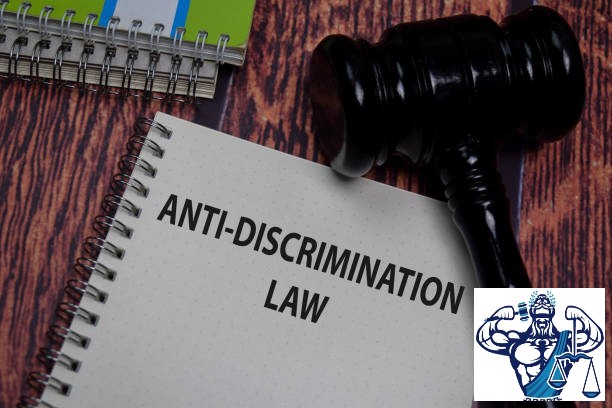Here at the Law Office of Vincent Miletti, Esq. and the home of the #UnusuallyMotivated movement, we take pride as a resilient and dependable legal services firm, providing such services in both a traditional and online, web-based environment. With mastered specialization in areas such as Employment and Labor Law, Intellectual Property (IP) (trademark, copyright, patent), Entertainment Law, and e-Commerce (Supply Chain, Distribution, Fulfillment, Standard Legal & Regulatory), we provide a range of legal services including, but not limited to traditional legal representation (litigation, mediation, arbitration, opinion letters, and advisory), non-litigated business legal representation and legal counsel, and unique, online legal services such as smart forms, mobile training, legal marketing, and development.
Still, here at Miletti Law®, we feel obligated to enlighten, educate, and create awareness, free of charge, about how these issues and many others affect our unusually motivated® readers and/or their businesses. Accordingly, to achieve this goal, we have committed ourselves to creating authoritative, trustworthy, & distinctive content. Usually, this content is featured as videos posted on our YouTube Channel https://www.youtube.com/channel/UCtvUryqkkMAJLwrLu2BBt6w and blogs that are published on our website WWW.MILETTILAW.COM. With that, the ball is in your court and you have an effortless obligation to subscribe to the channel and sign up for the Newsletter on the website, which encompasses the best way to ensure that you stay in the loop and feel the positive impact of the knowledge bombs that we drop here!
As the authoritative force in Employment Law, it only seemed right to introduce one of the many upcoming series in which we introduce a variety of topics that looks to educate and deliver in a manner that only Miletti Law® can. To that end, this blog is Part XIV of our ongoing series on “Life Sciences Industry Guide for Labor and Employment,” in which we review the basics and issues of concern to employers engaged within the life sciences industry. In Part XIII of the series and our blog titled “Understanding Restrictive Covenants in the Life Sciences Industry,” we mentioned that in order to prohibit the use of proprietary information to the benefit of employees, employers often execute restrictive covenants and, consequently, protect their trade secrets. Through restrictive covenants, employees are prohibited and discouraged from engaging in activities that might harm former employers, such as competing against and/or stealing/soliciting clients. We also added that when it is deemed a “restraint on trade,” a restrictive covenant is considered to be invalid. For this reason, while they will at times attempt to strike some terms (the blue pencil rule) or even modify them (equitable information) as a way of limiting their scope, courts have shown reluctance in enforcing broad restrictive covenants.
As a continuation of our discussion, this blog is titled “Pre-employment Screening of Candidates in Life Sciences Industry” and is an overview of issues employers within the life sciences industry should consider when screening and hiring potential candidates.
Pre-employment Screening of Candidates in Life Sciences Industry
Like in any other industry, there are various issues related to the pre-employment screening of candidates seeking to secure jobs within the life sciences industry. As we have mentioned in our past blogs under this series, this industry is highly regulated and extra personnel to supplement the existing workforce. For these reasons, the industry experiences frequent seasons of hiring and screening. Accordingly, while employers should be proactively wary of them, many issues are bound to arise in the pre-employment screening process. Some of the typical categories where these issues may arise include, but are not limited to, (1) applications for jobs and implies risks of contracts, (2) reference and background checks, (3) inquiries and testing during pre-employment, and (4) onboarding of new employees.
In addition to considering these issues keenly, employers within this industry should also ensure that interviewers are aware that only business-related information (i.e., limited to key details required to determine a candidate’s qualifications for the position) should be requested and obtained during interviews. Importantly, employers must be proactively conversant with jurisdictional laws and regulations regarding interviews and interviewing process. For instance, asking interviewers questions related to their criminal, pay, and/or salary histories has been banned in a growing number of states.
This implies that as a critical step in preparing how to carry out pre-employment screening of candidates, employers must be compliant with local and states laws regulating how hiring and screening are conducted in the life sciences industry. For instance, while noncompliance could lead to potential class liabilities, a number of federal statutes, such as the FCRA (Fair Credit Reporting Act), can be challenging to negate and navigate once an employer finds itself on the wrong side of the statute. Additionally, other jurisdictional laws regulating demonstrations of drug testing and job-related functions should be critically taken into account because running afoul of them could also push the employer involved in a murk of class liabilities.
In Part XV of this series and our blog titled “Avoiding Liability During Hiring in the Life Sciences Industry,” we shall move the discussion forward by hammering on the steps employers within the life sciences industry should take to avoid liability during the process of screening and hiring of potential candidates.
In the meantime, stay tuned for more legal guidance, training, and education. In the interim, if there are any questions or comments, please let us know at the Contact Us page!
Always rising above the bar,
Isaac T.,
Legal Writer & Author.
 Professional Legal & Business Services And Representation - English & Espanol!
Professional Legal & Business Services And Representation - English & Espanol!

 314-648-2586
314-648-2586 CALL US NOW
CALL US NOW







